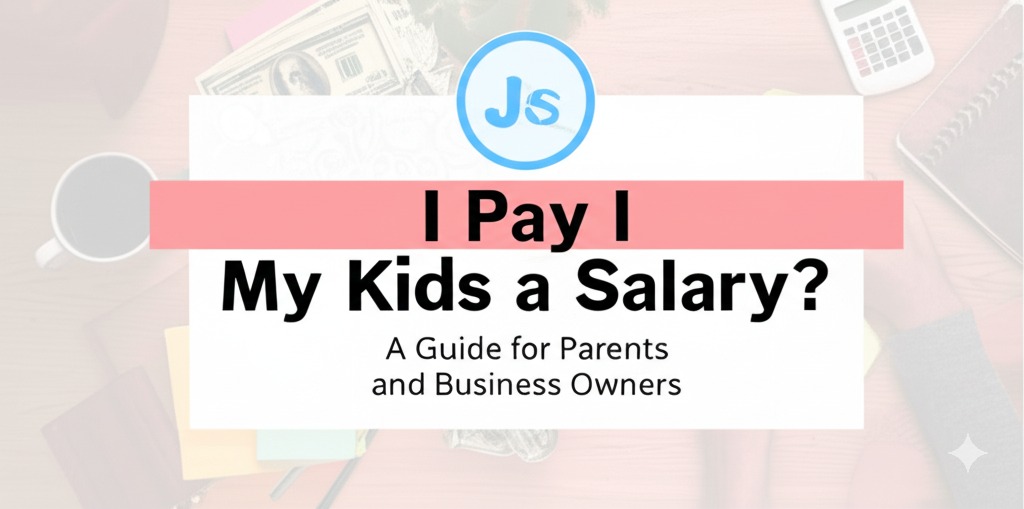
As a parent and business owner, you may have considered paying your children a salary for their contributions to your family business or household tasks. While it may seem like a simple solution, the question of whether you can legally and ethically pay your kids a salary is complex and requires careful consideration. In this article, we will explore the key aspects of paying your kids a salary, including legal guidelines, tax implications, and practical tips for managing it properly.
What Does Paying Your Kids a Salary Mean?
Paying your kids a salary involves compensating them for their work in a way similar to how you would pay any other employee. This could be for tasks related to your business or household responsibilities. While this may seem like a straightforward way to teach your children about work and money, it is important to understand the rules and regulations that govern such arrangements.
The Legal Landscape: Can You Legally Pay Your Kids?
The legality of paying your kids a salary depends on several factors, including the nature of their work, their age, and the structure of your business. Here are the key legal considerations:
1. Age Restrictions
In most countries, child labor laws set strict guidelines regarding the age at which a child can legally work and the types of work they can do. Typically, children under a certain age (often 14 or 15 years old) are restricted from performing certain types of work or working more than a specified number of hours.
2. Type of Work
The type of work your child performs must be suitable for their age and abilities. For example, a child might be able to help with office tasks or light cleaning, but they are not permitted to perform hazardous work, especially in industries that require special training or pose safety risks.
3. Family Business Considerations
If your child works in a family-owned business, the rules might be more relaxed than for other employers. However, you still need to ensure that the work is legitimate and that the salary paid is reasonable for the tasks performed.
Paying Your Kids: Tax Implications You Need to Know
When you pay your kids a salary, it’s not just about the money; there are also tax considerations. Below are some key points to keep in mind:
1. Income Tax
In most cases, your child will be required to pay income tax on the salary they earn. However, if the amount is below the taxable threshold, your child may not owe any taxes. Be sure to consult with a tax professional to ensure compliance with your local tax laws.
2. Payroll Taxes
As an employer, you are required to pay payroll taxes for any employee, including your children. This includes Social Security and Medicare taxes. However, if your business is structured as a sole proprietorship or partnership and your child is under 18, they may be exempt from these taxes. Again, it’s essential to consult with a tax advisor to ensure you are following the appropriate rules.
3. Tax Deductions for Your Business
Paying your child a salary can be beneficial from a tax perspective. The IRS allows you to deduct your child’s wages as a business expense, which can reduce your overall taxable income. Just make sure that the wages are reasonable for the work performed and well-documented.
Benefits of Paying Your Kids a Salary
There are several reasons why paying your kids a salary can be beneficial, both for them and for you. Here are a few key advantages:
1. Teaching Financial Responsibility
Giving your kids a regular paycheck helps them learn about money management, saving, and budgeting. It can also help them understand the value of hard work and the importance of earning an income.
2. Tax Savings
Paying your kids a salary can help lower your family’s overall tax liability. By hiring your children, you can shift some of your income to them, potentially lowering the total amount of tax your family owes.
3. Setting Up a Retirement Fund
If your child earns a salary, they are eligible to contribute to a retirement account such as an IRA. This can be a great way to help them start saving for retirement early in life.
What Tasks Are Appropriate for Paying Your Kids?
If you decide to pay your children a salary, it’s important to assign them tasks that are age-appropriate and beneficial for their development. Here are some ideas:
1. Administrative Work
Older children or teenagers may be able to help with office tasks such as answering phones, filing documents, or managing social media accounts for your business.
2. Chores and Household Tasks
Younger children can earn money by helping with age-appropriate tasks around the house, such as cleaning, organizing, or helping with meal prep.
3. Assisting with Inventory or Retail Tasks
If you run a retail or e-commerce business, your kids might assist with stocking shelves, packing orders, or managing inventory. Make sure the work is safe and suitable for their age.
How Much Should You Pay Your Kids?
When determining how much to pay your kids, it’s essential to ensure that the salary is reasonable for the work performed. While you are free to set the pay rate, it should align with the type of work your child is doing and the going wage for similar tasks. Avoid paying an unreasonably high salary that might raise questions with tax authorities.
Conclusion: Is Paying Your Kids a Salary Worth It?
Paying your kids a salary can be a great way to teach them financial responsibility and offer tax benefits for your family business. However, it’s essential to adhere to legal guidelines, pay reasonable wages, and keep thorough records to ensure compliance with tax laws. Before you make any decisions, consult with a tax professional or accountant to understand the implications for your specific situation.
If you’re a business owner or parent considering this option, it could be a smart move to involve your kids in your business, provided that you follow the rules and structure the arrangement appropriately.

Andre Cuevas provides career insights, job search strategies, and professional advice to help individuals navigate the job market and achieve their career goals.




